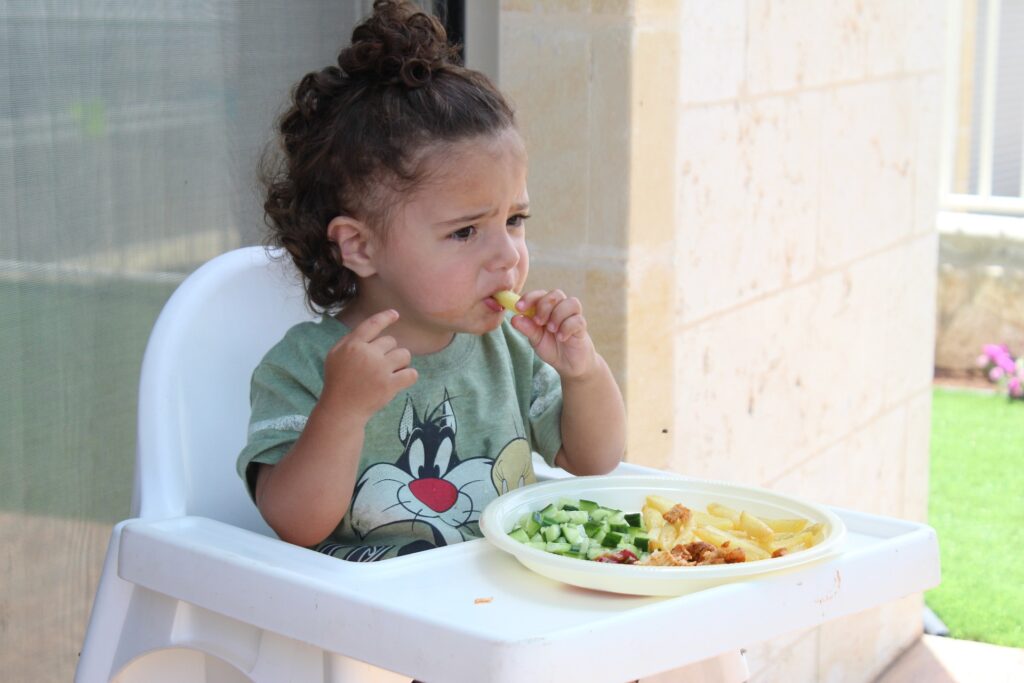What’s the leading cause of injury and death in children under four years of age? Choking. In most cases, the choking hazards are coins and toys, but foods also rank highly on the list of things that your little one can choke on. And some foods are more dangerous than others.
When you have small children, it’s important to supervise during mealtimes. However, that may not always be possible, and turning away for even a second can have tragic consequences. Fortunately, you can minimize the risk of choking by not giving your child certain foods. Or, at least make some adjustments to how you serve those foods.
If you have kids under four, avoid these 13 food choking hazards…
Hotdogs

Hot dogs may be tasty, but in recent years they have caught people’s attention for a less appetizing reason – they are a potentially deadly choking hazard for children, especially those under four.
Small children are prone to choking on hot dogs because they either don’t have all their teeth or they are still learning to chew. If you choose to feed your kids hotdogs, ensure that they are cut into small pieces.
Whole Grapes

Whole grapes are another food that can cause choking in young children. In fact, grapes are said to be the third most common cause of death among kids who die in choking incidents involving food.
To reduce the risk of airway obstruction and choking, buy small seedless grapes and cut them into quarters before serving them to your children. Or, don’t serve grapes until your kids are older.
Whole Cherry Tomatoes

Cherry tomatoes are about the same size as grapes or larger, so when served whole, they can lodge in the throat of young children and block off the air passage, leading to tragic choking incidents.
Should you stop feeding your little ones cherry tomatoes? They’re delicious and nutritious, so perhaps not. However, parents should cut them into quarters or smaller before serving and be cautious.
Cherries

Most children can begin eating cherries from about 8 months of age. Cherries contain pits and have rather thick skin, though, and they can block the airway into the lungs, particularly large cherries.
Fortunately, choking situations can be minimized and avoided with cherries if the pits are removed. The cherries are quartered or cut into bits that are small enough to swallow without difficulty.
Cheese Chunks

Cheese makes for a tasty anytime snack for young children. Many kids under four love it, and many parents love to serve it because slicing cheese is quick and easy. But be careful how you cut it up.
Health professionals recommend that parents always serve cheese shredded or finely chopped, as chunks and large wedges of cheese can quickly become a choking hazard that can cut off breathing.
Chunks of Meat

Cooked/grilled/fried meat chunks, like chunks of cheese and many other common foods, can cause life-threatening medical emergencies involving young children due to their size, shape, and texture.
When serving meat, minimize the choking risk by cutting it into small, manageable bites suitable for babies and toddlers. Avoid cutting into strips, as children can easily bite off a piece too large.
Raw Vegetables

Raw vegetables served whole is dangerous because pieces can break off due to cutting by the child’s incisor teeth, and these large pieces of a hard veg cat get stuck in the pharynx or trachea.
Instead of whole raw vegetables, serve soft-cooked veggies if you have a little boy or girl under four, or use a grater or cut the raw veg into very fine pieces. This will significantly reduce the risk of choking.
Nuts

Though nuts are healthy, they can cause choking in young children. Kids under four typically cannot grind food properly. They may not have all their molar teeth and are still developing this skill.
Peanuts and tree nuts require thorough chewing. Thus, it is best to avoid giving them to small children altogether. Choking concerns aside, many kids have nut allergies, so there’s an added risk.
Nut Butter

A spoonful of nut butter can be lethal if it blocks the windpipe or sticks to the lining of the throat. Moreover, nut butter that contains nut segments or full nuts can be inhaled and cause choking.
For safety purposes, avoid serving globs of nut butter (especially crunchy nut butter) to young children. When adding it to bread slices or crackers, spread it thinly for easy consumption.
Candy

Candy is bad for children. In the long run, it damages their teeth and can cause a variety of health issues. Short term, candies can obstruct airways and lead to choking. Hard candies are particularly dangerous.
Most kids love sweet treats. But if you’re going to give your child sweets or candy, make sure that it is soft, small, and easy to chew and swallow. The safest candies dissolve quickly in the mouth.
Marshmallows

Don’t be deceived by the humble looks of your common everyday marshmallow. Its airy texture and squishy consistency make it a risky confectionery food item that shouldn’t be served to kids.
Marshmallows, even small ones, can conform to block a child’s airway. The result of this can be death. Numerous child deaths have been reported due to children choking on marshmallows.
Chewing Gum

Chewing gum shouldn’t be given to young children. Most kids under four cannot grasp the concept of chewing without swallowing. Also, it is possible to swallow and choke on the gum accidentally.
Many food products are and can be a choking hazard. However, with chewing gum, the gum base (a component that makes gum stretchy) generally doesn’t go down as easily as foods do.
Popcorn

Popcorn is a risky food to serve to young children because of their inability to chew well. Children have narrower airways than adults, and unchewed kernels are large enough to block them.
The fact that popcorn is a hand food commonly eaten by the handful increases the risk of choking. The bottom line is don’t give your child popcorn until he or she is old enough to chew properly.







